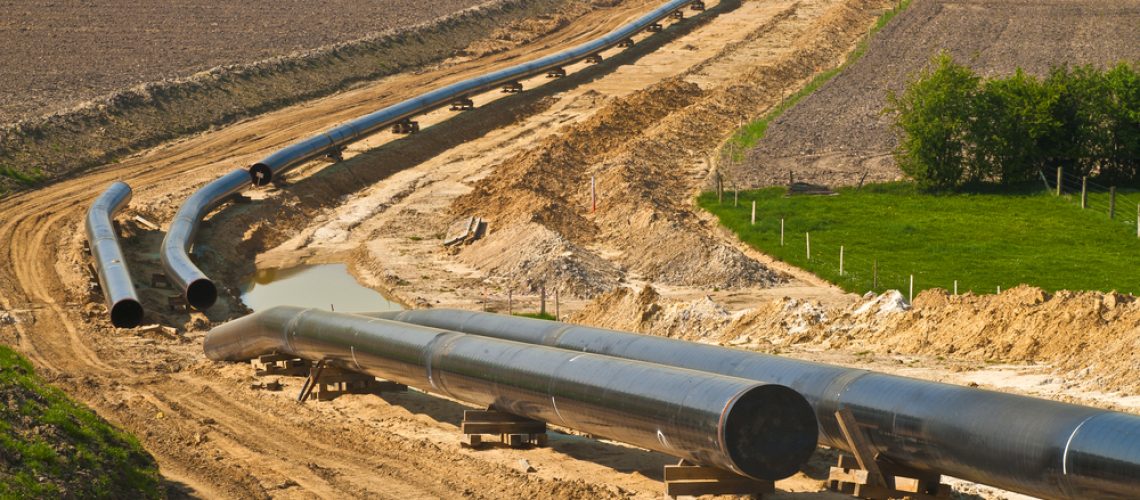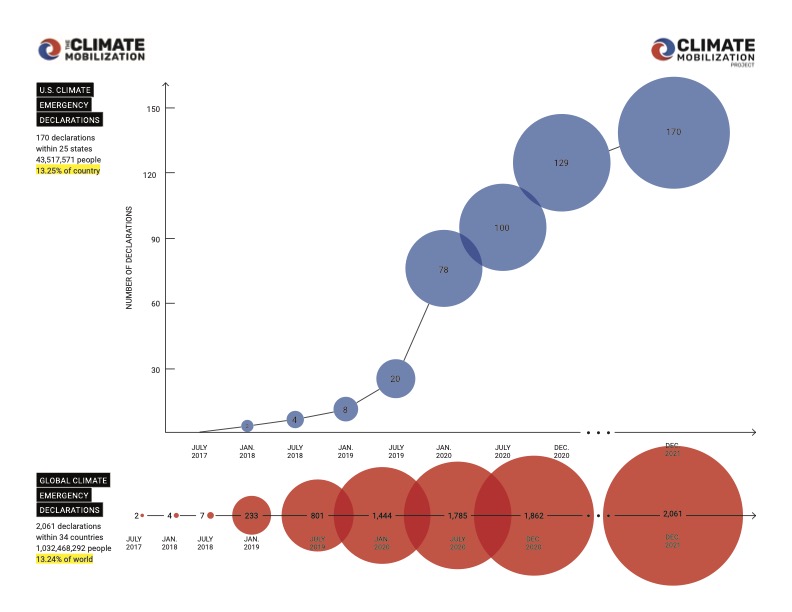
Congressional Climate Emergency Campaign Launches in the United States
A growing coalition of climate justice, faith, labor, and environmental groups have launched a campaign calling on Congress to declare Climate Emergency in the United States. An online tool available at ClimateEmergency.US automatically sends a customizable letter to the signer’s Members of Congress urging they pass a declaration recognizing Climate and Ecological Emergency and initiate a democratic and just mobilization “larger than that of World War II” to reverse global warming.
Sign the petition and view the growing list of endorser here.
If your organization wants to sign onto the effort, please visit this page.
The Hill newspaper, a key publication in Washington D.C., published a column today by our Founder and Executive Director Margaret Klein Salamon explaining the campaign and its goals. Read “Moving into Emergency Mode on Climate” at The Hill.

Canada fails on Climate Emergency
The grassroots Climate Emergency Movement in Canada has been a global leader, with 404 governments adopting climate emergency resolutions at the local level. However, shortly after its House of Commons took up and passed a weak national climate emergency declaration, they failed to make it count.
The non-binding resolution was tied to an old, gradualist timeline rather than moving at emergency speed. It recommitted Canada to their commitments under the Paris climate accord without even on additional goal or legally binding commitment. Then, two days later, Prime Minister Justin Trudeau’s government approved the expansion of the Trans Mountain Pipeline project, which is intended to vastly accelerate the extraction of Alberta tar sands oil, nearly tripling the capacity of the existing pipeline and locking in billions of dollars in investment in fossil fuel infrastructure and untold megatons of carbon emissions from the extracted oil.
The hypocrisy of these two parliamentary decisions demonstrates the gap between the will of the people and the power of the fossil fuel industry in the industrialized world. Declarations of Climate Emergency are a start — these declarations can unify the shared commitment of the movement, clarify the truth of the situation, and put lawmakers on record. But they are not enough — only a sustained global movement focused on winning power, launching a mobilization, and bringing the fossil fuel industry to heel, will give us a chance at survival.
The Trans Mountain Pipeline will negatively impact the entire globe, but it most seriously threatens the land rights of numerous Indigenous communities in its path. After the pipeline announcement, the Union of British Columbia Indian Chiefs (UBCIC) reaffirmed the commitment of leaders from across British Columbia, stating that they “remain staunchly opposed” to pipeline expansion, and “have vowed that it will never get built.” You can support the UBCIC’s efforts here.
Climate Truth is Spreading
On June 14, Pope Francis declared a global climate emergency and made a plea directly to oil executives to hear “the increasingly desperate cries of the earth and its poor.” The Pope is the latest among a chorus of voices that is increasingly overrunning the oil and gas industry’s disinformation campaigns, bringing to the public, in a way never before, the true scope and urgency of the climate crisis.
Early this month, Nobel laureate Joseph Stiglitz called for a World War II-scale mobilization to fight the climate crisis as the existential threat it is. And Greta Thunberg continues to sound a clarion call on behalf of her generation and the future they are fighting for; she and other youth activists have called for a general strike on September 20 in support of climate action. A week ago, the Breakthrough National Centre for Climate Restoration (our close advisors and allies) published a policy paper outlining the perils we face if the world’s governments fail to keep global heating from exceeding the Paris Agreement’s best limit of 1.5°C. The horrific risks it describes including major famines, resource wars, massive migrations, and widespread, severe degradation of agriculture and habitable land). The likelihood of such outcomes has started getting much-needed attention in the mainstream U.S. media, among other places.
The Guardian, one of the U.K.’s major newspapers, also took an important step this month toward recognizing the oncoming climate catastrophe for what it is. The newspaper released a statement that it would use the terms “climate emergency, crisis, or breakdown” rather than “climate change” to describe the interrelated, cascading effects of increased global temperatures and their effects on human and non-human life. Noticias Telemundo, the news division of the second largest Spanish-language broadcasting company in the U.S., will also be using “climate emergency” to describe the situation going forward.
Climate Emergency Declarations Continue to Accelerate
The Industrial Revolution and its dependence on carbon began in the United Kingdom, and is culminating now in the accelerating climate crisis. It is appropriate, then, that people and their local governments in the U.K. are now taking responsibility for these emissions by recognizing and committing to confront the climate emergency. At current count, more than half of the U.K. populace lives in a city or region whose local government has declared a climate emergency. This milestone follows a national declaration of Climate and Environmental Emergency by the U.K. government.
Outside the U.K., the climate emergency campaign continues to accelerate. The Irish Parliament declared a climate emergency, as did the government of Catalonia and the first municipal governments in Belgium (Koekelberg), the Czech Republic (Prague 7th District), and France (Mulhouse City Council). Close to half of New Zealanders now live in cities that have declared a climate emergency — all of which have declared in the last month. As of May 1, no city in Italy had declared a climate emergency; now more than a dozen have, including Naples and Milan, representing close to 15% of the country’s population. Germany has similarly seen 14 cities declare an emergency in the last six weeks. And new cities in Australia, Switzerland, and the United States are declaring climate emergency.
May also saw a major setback, as a conservative coalition tied closely to coal interests won federal elections in Australia, where the climate emergency — and its increasingly visible, deadly consequences in that country — was a central issue.
For updated data on local Climate Emergency declarations, please visit the International Climate Emergency Forum public database.
Leading the Public into Emergency Mode
Recognition that we are deep into a climate emergency is accelerating tremendously. The Climate Mobilization’s Leading the Public into Emergency Mode (published 2016, and updated this month) describes the transformative power of telling the truth about the climate emergency and the social movement ecosystem this can invigorate, creating the necessary rapid shift in consciousness needed to achieve a WWII-scale climate mobilization.
Read and share the updated Leading the Public Into Emergency Mode: Introducing the Climate Emergency Movement.
Thank you for your commitment to this work and for helping to make it possible. We are powered by the donations of individuals who want to make a Climate Mobilization real. Please consider joining with us by making a recurring contribution.


















